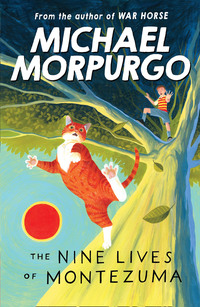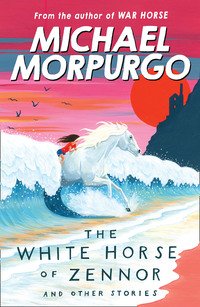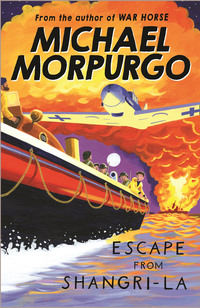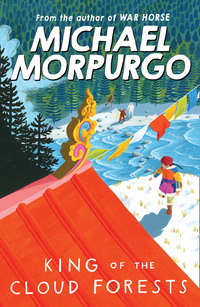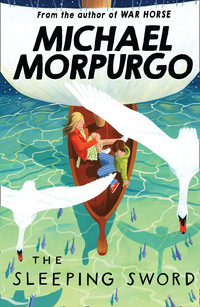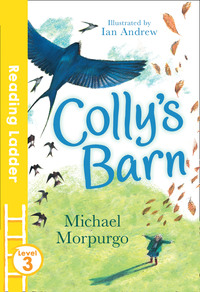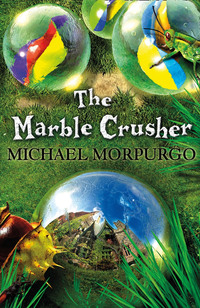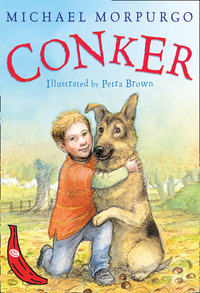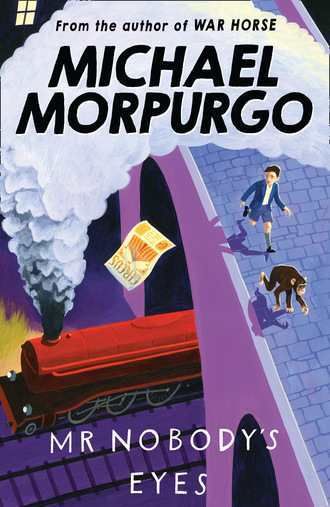
Полная версия
Mr Nobody's Eyes


EGMONT PRESS: ETHICAL PUBLISHING
Egmont Press is about turning writers into successful authors and children into passionate readers – producing books that enrich and entertain. As a responsible children’s publisher, we go even further, considering the world in which our consumers are growing up.
Safety First
Naturally, all of our books meet legal safety requirements. But we go further than this; every book with play value is tested to the highest standards – if it fails, it’s back to the drawing-board.
Made Fairly
We are working to ensure that the workers involved in our supply chain – the people that make our books – are treated with fairness and respect.
Responsible Forestry
We are committed to ensuring all our papers come from environmentally and socially responsible forest sources.
For more information, please visit our website at www.egmont.co.uk/ethical

Egmont is passionate about helping to preserve the world’s remaining ancient forests. We only use paper from legal and sustainable forest sources, so we know where every single tree comes from that goes into every paper that makes up every book.
This book is made from paper certified by the Forestry Stewardship Council (FSC), an organisation dedicated to promoting responsible management of forest resources. For more information on the FSC, please visit www.fsc.org. To learn more about Egmont’s sustainable paper policy, please visit www.egmont.co.uk/ethical.

Also by Michael Morpurgo
Arthur: High King of Britain
Escape from Shangri-La
Friend or Foe
The Ghost of Grania O’Malley
Kensuke’s Kingdom
King of the Cloud Forests
Little Foxes
Long Way Home
My Friend Walter
The Nine Lives of Montezuma
The Sandman and the Turtles
The Sleeping Sword
Twist of Gold
Waiting for Anya
War Horse
The War of Jenkins’ Ear
The White Horse of Zennor
The Wreck of Zanzibar
Why the Whales Came
For Younger Readers
Conker
Mairi’s Mermaid
The Best Christmas Present in the World
The Marble Crusher



Table of Contents
Cover
Title Page
Copyright
Dedication
Acknowledgements
Chapter One
Chapter Two
Chapter Three
Chapter Four
Chapter Five
Chapter Six
Chapter Seven
Chapter Eight
Chapter Nine
Chapter Ten
CHAPTER ONE
HARRY WAS ALONE WITH HIS THOUGHTS. THERE may have been over two hundred children with him in the playground, but he was quite alone. Maybe it would be today, maybe tomorrow – unless of course something went wrong, and something still could go wrong. Harry knew it was wicked even to think of that let alone to hope for it. But he could not stop himself. He was hoping for it hard.
‘We need a goalie!’ Peter Barker was bellowing at him from across the playground. Harry turned away. Peter Barker sat next to him in the choir at St Cuthbert’s and swapped Turf cigarette cards with him (the ones with the big-headed footballers). Father Murphy’s sermons ran on a bit on a Sunday morning and the surreptitious exchanges between the folds of the surplices added sinful spice to the dealing: one Tom Finney for one Billy Wright it was, last Sunday.
‘Come on, Harry.’ Peter was waving him over. ‘We’ve got no one else.’ They were all shouting at him now. He had no choice.
The goal he had to defend was twice the width it should have been, between the two uprights of the rusting chainlink fence with the wilderness of the bomb site behind him. It was fair enough, though, because the other goal was every bit as wide, stretching as it did between the two drainpipes on the lavatory block wall. They often chose Harry for goalkeeper – he wasn’t good for much else. He knew he wouldn’t have much to do, so he leaned back against the fence and slipped easily into his thoughts.
‘An evil thought is a sin in itself, Harry.’ That was what Father Murphy had told him in Confession. If that were so, and Harry believed most of what Father Murphy told him, then Harry’s heap of sins was piling up fast. He must not allow himself to think about it any more. Instead he would think of Bournemouth. He could always banish his miseries by thinking his way back to Bournemouth. He’d done it often enough over the last two years, ever since Bill came to live with them.
*
Bournemouth was the last time Harry had been happy.
He remembered every hour of it, every minute of it. The war had just finished and they did what his mother had always promised they would do as soon as it was over. They took the train from London down to Bournemouth to spend a week by the sea. All his life he’d wanted to see where the trains went to that steamed past the church and under the bridge beyond the allotments. And now, gazing out of the window, he’d seen the steeple and the graveyard flash past before they thundered under the bridge and were away. His mother sat beside him in her best brown suit, serene in the noise and the smoke of the carriage with the soldiers in their great boots and gaiters laughing their way home, the war done with.
‘Your old man in the Air Force, is he?’ one of them asked noticing the winged brooch Harry’s mother always wore on her brown suit.
‘He was,’ she said and left it at that. The soldiers quietened, looking at each other and wincing at their own awkwardness, and Harry felt that surge of pride as he always did whenever his father was spoken of. He smiled up at his mother and she held his hand and squeezed it. There was no grief left, not after four years, only a sense of shared loss that bound them together. Harry hardly remembered his father but his photo was on the mantelpiece in the sitting room, the medal lying beside it.
‘Fine boy you’ve got there,’ said the soldier, taking a bar of chocolate out of his breast pocket.
‘I think so,’ said Harry’s mother, smiling.
‘Do you eat chocolate, son?’
‘Ask a silly question,’ Harry’s mother said, and the carriage laughed again and rocked rhythmically as everyone ate chocolate all the way to Bournemouth.
To a great leaping cheer, Harry’s team scored a goal against the lavatory wall, but it was hotly disputed because the goalkeeper said it had hit the guttering above his head. He held up a piece of the gutter as evidence and a long wrangle ensued before the goal was finally allowed.
Harry smiled and thought of Bournemouth, of number twenty-two Seaview Terrace; of Mrs Coleman, the landlady – ‘Call me Aunty Ivy,’ she had said – and the little room he had shared with his mother. He remembered the stories his mother had read him in bed, the smell of clean sheets, and the sparrows squabbling outside their window. Then there was the day they had built the sandcastle with its ramparts and towers, with its great cuttleshell walls – hundreds of them they had collected – so that it should be forever impregnable against the sea. He could see now the great moat they had engineered and the driftwood plank that served as a drawbridge. He had stood on the drawbridge and watched the sea surge up the beach and into the moat under his feet only to be held at bay by the cuttleshell walls. Then with the darkness falling and the swifts screaming low over the beach, they had planted a flag in the tower and left the beach behind them, their sandcastle an island now but still standing. And then came the two black dogs with wildly whirling tails, cavorting through the shallows. They stopped by the castle to investigate and decided this was just the place to dig. Perhaps it was the only soft sand they could find. No shrieks, no yells could shift them as they dug in the sand with crazed abandon. Within seconds the castle was reduced to a formless pile of sand. ‘Perhaps they were after sea rabbits,’ Harry’s mother said, as they walked home happy with laughter.
Home was Aunty Ivy’s white-painted villa with the green balconies all around, where the food always filled your plate to the edges and where there always seemed to be more. ‘Haven’t you heard of rationing?’ Harry’s mother asked.
‘Rationing, dear? Never heard of it,’ laughed Aunty Ivy, and she tapped her nose conspiratorially. ‘We have our ways,’ she said, ‘and that’s all I’m saying.’
It was Aunty Ivy that made up the picnic baskets they took with them each day to the sea or to the cliffs. Harry’s mother preferred to eat lunch away from the sand of the beach, so they walked the cliffs searching for the right spot. They would spread out the red-checked cloth, feast themselves on sausage rolls and digestive biscuits, and look down at the gulls and fulmars floating below them on the air.
They were on their way back from the beach one evening when his mother stopped to watch the very last of the sun disappear into the sea. ‘That’s where your father’s plane went down, Harry,’ she said. ‘He’s out there somewhere. Still, no one could have a better grave, could they?’ She put her arm round him and pulled him close. ‘We mustn’t ever forget him, Harry.’
‘Harry!’ The cry came in unison, a cry of dismay and anger. Harry never even saw the ball. He heard it crashing against the wire mesh above his head and felt the crumbs of rust fall on his neck as he ducked. Recriminations were sharp but mercifully brief, because everyone knew there were only a few short minutes left until the end of break. He conjured up Bournemouth again, although he didn’t really want to, not any more. It was like a recurring dream that you have to finish even though you know it ends badly.
The day on the pier was the day it all went wrong for Harry. A fierce gale was whipping the beach into angry sand squalls so that no one could stay there for long that morning. The cliffs were shrouded in cloud so they ate their picnic in a bus shelter and then, tucking the cloth back into the basket, they made for the pier. Harry said he wanted to walk all the way to the end, and so they did, hanging onto the rail and to each other to save themselves from being blown across to the other side. They laughed aloud in the wind and the spray as the waves seethed below them and crashed against the pier. They had reached the end and were breathless with the wildness of it all when the cloth from the picnic basket was whipped out by the wind and flew off down the pier wrapping itself around the rails some fifty yards away. Harry went racing after it but someone was there before him. A tall man he was, with glasses. He had the cloth in his hands. ‘Not sure you should be out here on your own,’ he said as Harry took the cloth from him, and his mother came running up.
‘He’s not on his own,’ said Harry’s mother, ‘he’s with me.’
‘Even so I think it’s a bit risky, don’t you? Here, let me help you.’ He took the basket. ‘Come on, take an arm each and hang on.’
They did not need his help and Harry knew it; and what was worse, Harry knew his mother knew it, but she took his arm just the same. Harry had no choice. He followed her example and clung to the man’s arm all the way back down the shuddering pier as the waves broke over it, showering them with sea-spray so cold that it took the breath from their bodies. In the shelter of a tearoom the man took off his glasses, shook out his coat, and introduced himself. ‘I’m Bill Wesley,’ he said, holding out his hand to Harry’s mother, and she was smiling at him as she took his hand.
In the days that followed Harry hardly saw his mother. It was Aunty Ivy who built sandcastles with him now and pushed him on the swing in the front garden. ‘If I’d had a little boy I’d have wanted him to be just like you, pet,’ she told him, ‘but Mr Coleman and me, we weren’t blessed.’ Harry wasn’t sure what she meant by that. It was Aunty Ivy and not his mother who read bedtime stories to him, kissed him goodnight and tucked him up leaving the door open for the light. He heard her tell his mother one morning out in the passage, ‘I’ll look after the boy for you, it’ll be a treat for me. I’ve always wanted one of my own, you know. You go and enjoy yourself with your young man. You’re only young once.’ And so every morning after breakfast Bill Wesley would come, and his mother would say to Harry, ‘You don’t mind, do you, dear? Aunty Ivy will look after you. I’ll be back before bedtime.’ But she never was.
On the last day at breakfast his mother said that Billy – she called him ‘Billy’ now – wanted to take them both on a boat trip. ‘He wants to get to know you a bit,’ she said. Harry told her he wasn’t feeling very well – he was sure she wouldn’t go if he wasn’t well. But his ruse backfired on him. Aunty Ivy put her warm hand on his forehead and said she thought he might well have a fever coming on and that perhaps he ought not to go out, that she would be quite happy to look after him. So his mother went out with Bill Wesley on the boat without him.
Harry watched them from his bed through Aunty Ivy’s binoculars. He watched them out in their bobbing boat until his anger made him cry. Aunty Ivy said she understood.
She cuddled him close and kissed him. ‘It’ll be all right, pet. I’ll take care of you. If you ever need a friend your Aunty Ivy will always be here. Come on, cheer up. She’s a pretty woman, your mother. Only natural she’d take up with someone one day. Nice young man he is too – works in a bank, he tells me. A woman doesn’t want to stay a widow all her life – believe me, pet. She should get married again. Only natural.’
And that’s just what happened only a few months later in St Cuthbert’s. They had the reception in the church hall afterwards. Harry was there, lost in the legs of the wedding guests. ‘Are you happy for me, Harry?’ his mother asked him. She was wearing the brown suit, but the winged brooch wasn’t there any more. Harry nodded.
‘Doesn’t look very happy to me,’ said Bill, bending down and ruffling his hair. ‘I’ll be looking after you both now, Harry.’
‘Give us a smile, Harry dear,’ his mother said through her tears. Harry smiled, but just to please her. She kissed him and whispered, ‘It’ll be all right, you’ll see.’
But it was not all right. Nothing was ever to be all right after that.
*
‘Harryyyy!’ Harry started out of his dream too late and the ball rolled past his outstretched foot and through a hole in the fence behind him. They were all shouting at him, Peter Barker amongst them. ‘What’s the matter with you, Harry?’ he said, rushing up to him. ‘You didn’t even try. We just lost and it’s all because of you. You’d better fetch the ball, and quick. The bell’s going any second.’
There was a system for getting the ball back if it went through or over the fence into the bomb site. Everyone knew it was absolutely forbidden to go in there. Mr Quigley, the headmaster, had told them often enough – the walls were dangerous and there could even be unexploded bombs. Of course no one really believed that. A dozen or more children gathered around the hole in the fence to form a protective screen so that no one could see what was happening from the school windows. ‘But why me?’ asked Harry.
‘You let the goal in, didn’t you?’ said Peter Barker. There was no answer to that.
‘Anyone about?’ Harry asked, looking for any lurking teachers on playground duty.
‘All clear,’ said Peter, turning Harry towards the hole and pushing him downwards.
Harry scrambled through and had just grabbed the ball when he heard the bell. He turned quickly and was crawling back when he felt his jumper catch on the fence. He looked up and called for someone to help free him. They had all gone, every last one of them, and Miss Hardcastle was striding across the playground towards him, the bell in her hand. Harry felt his jersey tear, and then his trousers, as Miss Hardcastle took him by the shoulder and dragged him back through the hole.
Miss Hardcastle was known to everyone as The Dragon, and with good reason. To get caught by any teacher in the bombsite was bad enough. It usually meant a dressing-down in Mr Quigley’s study as well as several hundred lines and a letter to take home; but to get caught by The Dragon was always a deal more painful. She dealt with things herself and in her own special way. When The Dragon hit you she meant to hurt you. Harry knew that only too well as he was marched along the corridor and into the classroom.
They were all sitting there in awed silence, guilty witnesses of what was about to happen. Not one of them dared to look him in the face except Peter, who shrugged his shoulders and apologised with his eyes. Harry dreaded the ritual but he was determined not to show it. He held out his hand, praying fervently it would be the flat of the ruler across the open hand this time.
‘How many times have you been told, Harry Hawkins, that the bombsite is out of bounds?’ Harry said nothing. It was better that way, over with quicker. You didn’t argue with The Dragon, not if you knew what was good for you. ‘You do know the bombsite is out of bounds, I suppose?’
‘Yes, Miss.’
‘Then why did you go in there?’
‘To fetch the ball, Miss.’
‘So you quite deliberately broke a school rule, didn’t you?’
‘Yes, Miss.’ The worst bit was the waiting. Harry’s mouth was dry with fear and the backs of his legs were sweating.
‘Deliberate defiant disobedience.’ The Dragon was working herself into a temper with every word. She grabbed his fingers and turned his hand over, knuckles uppermost. He knew now he had to expect the worst. ‘Perhaps this will persuade you to do as you’re told in the future.’ And she reached for the long ruler from the top of her desk. ‘And there’ll be a letter to take back to your father.’
‘He’s not my father,’ Harry said quietly.
‘What did you say?’
‘He’s not my father. My father’s dead.’
‘Oh yes, of course, I forgot,’ and her lips curled with acid sarcasm. ‘We all know Harry Hawkins’ father, don’t we, the great war hero, the great fighter pilot. You’ve told us often enough, haven’t you?’
‘He wasn’t fighter pilot, Miss. He was a navigator in a bomber and . . .’
‘Are you arguing with me?’ Her lips were tight with fury. ‘Are you?’
‘No, Miss.’ Harry knew he was stupid to have started it, but he would not let anyone call Bill his father, not even The Dragon. He winced in spite of himself as she tightened her hold on his wrist and pulled his hand out. He saw her tongue gripped between her teeth and watched the ruler swinging upwards. He did not try to pull away. He’d done that before. She just added another stroke every time he’d tried. His fingers curled involuntarily as the ruler came down, sharp edge first. With the hollow crack came the pain shooting all through him. ‘Maybe this!’ Again the ruler came down, again and then again. ‘Maybe this will teach you. And this! And this!’ Harry looked at her, his eyes hard with defiance. She dropped his wrist. ‘And don’t you dare look at me like that, Harry Hawkins, else there’ll be more.’ But Harry had no choice. His mouth and his eyes were full of tears that he must not let out. To blink would have been to release them. So he glared up at her, his huge eyes pools of dark anger. Miss Hardcastle seemed suddenly troubled and looked away, muttering to Harry to go and sit down and that he must come to pick up his letter from the staffroom before he went home. It was over.
The last thirty minutes of school were spent writing out in loopy writing, ‘The quality of mercy is not strained’ in their copy books. Harry’s hand hurt so much that he could scarcely hold the pencil. He could not see for the tears in his eyes, tears that despite all he could do dropped from time to time onto his copy book. He would wipe them away before they had time to soak into the paper and hope that no one had noticed, but everyone had. It was a strange thing, but after you’d had a beating from The Dragon, everyone was sympathetic but no one came near you, no one said anything. It was as if you’d suddenly caught an infectious disease of some kind. Harry was grateful for it, though. It meant he didn’t have to talk to anyone. He knew he’d find it difficult to talk and not to cry. He waited until he was alone in the cloakroom. Then and only then he cried. Holding onto the coat pegs, he cried up against the wall and kicked it until there were no more tears left inside him.
Miss Hardcastle was waiting outside the staff-room for him. ‘Haven’t got all day,’ she said, and she handed him the letter. ‘Go straight home now,’ she called after him, ‘and mind the traffic. It’s foggy out there again.’ He was surprised by her concern, by the gentleness in her voice, and looked back at her. For just a flicker of a moment as they looked at one another down the corridor Harry found himself almost believing she was trying to tell him she hadn’t meant all she had said, all she had done; but then the moment passed and he hated her again. ‘Go on, go on,’ she called out, ‘and mind you give it to your stepfather. I’ll be asking him when I see him.’ At least she had called him his stepfather. That was something.
He tied his scarf around his mouth as he stepped out into the smog of the playground. He ran out of the school gates and down the road towards the flashing orange beacons by the pedestrian crossing. He flexed his bruised hand inside his glove and blew on his knuckles to ease the hurt of it. And then he thought of the lectures that would be waiting for him when he got home and handed over the letter, the letter that would say how disobedient and defiant he had been. The lectures would not be from his mother, never from her, always from Bill or Bill’s mother, Granny Wesley, who had a face like an ancient crow. She was always at home these days. She had come to help Harry’s mother out – that was what she said. Harry could see it now. He could hear it now. She’d take one look at his torn jumper and his ripped trousers: ‘No tea for you tonight,’ she’d say. ‘Thoughtless child. How could you, and with your mother in the condition she’s in! Thoughtless.’ Or it could be worse still. Maybe it had already happened. They’d said it could be any day now. Perhaps it was today. He couldn’t go back home and face that, not yet.
He walked on past the Belisha beacons and made for the park. It wasn’t far. Maybe there would be a cigarette packet or two in the wastepaper bin by the bench, always a good place, that, for cigarette cards. It was worth a look, he thought.
Harry found the park gates more by luck than anything else. You could hardly see more than a few yards in front of you, the smog was that thick now. Shadows coughing in the gloom passed him by, and cars and buses crawled along the road, but headlights were all you could see of them.


